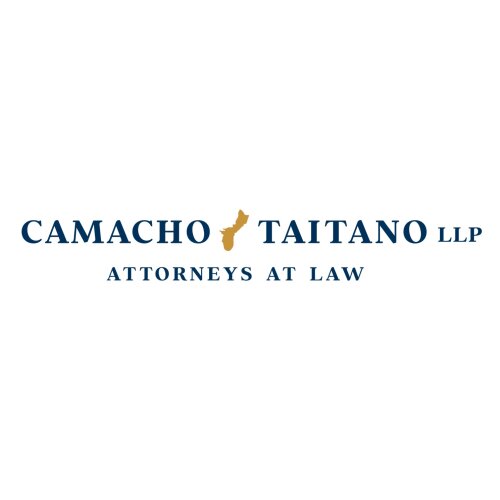Best Renewable & Alternative Energy Lawyers in Hagåtña
Share your needs with us, get contacted by law firms.
Free. Takes 2 min.
List of the best lawyers in Hagåtña, Guam
About Renewable & Alternative Energy Law in Hagåtña, Guam
Renewable and alternative energy law covers the regulations, policies, and incentives affecting the production, distribution, and use of energy from sustainable sources like solar, wind, and bioenergy. In Hagåtña, Guam, a growing focus on reducing dependence on imported fossil fuels has prompted increased interest in renewable energy solutions. Due to Guam's remote location and high energy costs, the government and local stakeholders are actively exploring environmentally friendly options. Legal guidelines govern everything from property use for solar panels to utility interconnection, tax credits, and zoning requirements.
Why You May Need a Lawyer
There are several situations where individuals or businesses in Hagåtña may require legal guidance regarding renewable and alternative energy. These include:
- Negotiating or drafting contracts for solar panel installations
- Understanding eligibility for government incentive programs or grants
- Resolving disputes related to energy project permits or regulatory compliance
- Navigating land use or zoning restrictions for renewable energy projects
- Seeking guidance on utility-rate negotiations or interconnection agreements
- Securing environmental permits and conducting impact assessments
- Advising on local, territorial, and federal laws affecting energy production and use
- Assisting with the formation of energy cooperatives or community solar initiatives
Legal professionals help ensure compliance, manage risks, and advocate for client interests in an often complex regulatory environment.
Local Laws Overview
In Hagåtña, and throughout Guam, renewable and alternative energy is regulated by a combination of local statutes, administrative rules, and utility policies. The Guam Public Utilities Commission (PUC) and the Guam Power Authority (GPA) play central roles in overseeing energy production and grid connection. Key legal aspects include:
- Net metering policies that allow residents and businesses to connect solar systems to the grid and receive credit for excess energy produced
- Building codes and permitting requirements for the installation of renewable energy systems
- Zoning ordinances affecting the placement and type of alternative energy installations
- Incentive programs or tax credits for renewable energy projects, often initiated by Guam legislation
- Environmental assessment requirements for larger-scale energy developments
- Regulations for independent power producers and the sale of renewably generated electricity to GPA
Compliance with these local laws helps support sustainable energy development while protecting the rights of property owners and the community. Legal counsel can help interpret evolving regulations and facilitate successful project execution.
Frequently Asked Questions
What kinds of renewable energy are most common in Guam?
Solar energy is the most widespread renewable resource in Guam, with growing interest in wind and bioenergy. The island's high sunlight levels make solar an attractive option for both homes and businesses.
Do I need a permit to install solar panels on my property?
Yes, residents and businesses in Hagåtña must obtain proper building permits and comply with local zoning regulations before installing solar systems.
How does net metering work in Guam?
Net metering allows owners of qualifying renewable energy systems to connect to the utility grid and receive credits for excess electricity they export. These credits can offset electricity purchased from the Guam Power Authority.
Are there financial incentives for renewable energy installations?
Yes, Guam has implemented various incentive programs over time, including grants, tax credits, and reduced permit fees. The availability of specific incentives may change, so it is important to check current law.
Who regulates alternative energy projects in Hagåtña?
The Guam Power Authority and the Guam Public Utilities Commission oversee most renewable energy matters, including grid interconnection and rate-setting.
Can I sell excess electricity from my solar panels to the power company?
Under Guam's net metering policies, you can receive credits for excess generation. Some larger projects, such as those by independent power producers, may have different agreements with GPA for selling electricity.
Are there restrictions on where I can place wind turbines or solar panels?
Yes, local zoning laws and homeowners' association rules may restrict placement, height, or appearance of renewable energy installations. Check with local authorities before beginning any project.
What happens if there is a legal dispute over a renewable energy installation?
Disputes over contracts, property rights, or regulatory compliance should be addressed through negotiation, mediation, or, if necessary, the courts. Legal counsel is often necessary to protect your interests.
Do renewable energy projects need environmental review?
Large-scale energy projects may trigger requirements for environmental impact assessments, especially if they could affect local ecosystems or cultural sites.
Where can I find a qualified renewable energy lawyer in Hagåtña?
You can start by contacting the Guam Bar Association, local law firms specializing in environmental or energy law, or organizations recommended below.
Additional Resources
If you require more information or assistance, consider reaching out to these resources:
- Guam Public Utilities Commission (PUC)
- Guam Power Authority (GPA)
- Department of Land Management, Guam
- Guam Energy Office (Division of Energy)
- Guam Bar Association
- Local environmental groups and renewable energy installers
These organizations can answer questions, provide access to forms, or direct you to qualified professionals for further help.
Next Steps
If you believe you need legal assistance regarding renewable or alternative energy in Hagåtña, consider following these steps:
- Gather all relevant documents, including contracts, permits, and correspondence related to your energy project or installation.
- Identify the specific issue or question you have, whether it is about permits, incentives, disputes, or compliance.
- Contact a local attorney with experience in renewable and alternative energy matters, or consult the Guam Bar Association for referrals.
- Reach out to governmental bodies like the GPA or PUC for any technical guidance or regulatory information.
- Prepare to discuss your goals and concerns openly with your legal counsel to develop an effective strategy.
Legal advice can help you navigate complex regulations, protect your investment, and support Guam’s commitment to a sustainable energy future.
Lawzana helps you find the best lawyers and law firms in Hagåtña through a curated and pre-screened list of qualified legal professionals. Our platform offers rankings and detailed profiles of attorneys and law firms, allowing you to compare based on practice areas, including Renewable & Alternative Energy, experience, and client feedback.
Each profile includes a description of the firm's areas of practice, client reviews, team members and partners, year of establishment, spoken languages, office locations, contact information, social media presence, and any published articles or resources. Most firms on our platform speak English and are experienced in both local and international legal matters.
Get a quote from top-rated law firms in Hagåtña, Guam — quickly, securely, and without unnecessary hassle.
Disclaimer:
The information provided on this page is for general informational purposes only and does not constitute legal advice. While we strive to ensure the accuracy and relevance of the content, legal information may change over time, and interpretations of the law can vary. You should always consult with a qualified legal professional for advice specific to your situation.
We disclaim all liability for actions taken or not taken based on the content of this page. If you believe any information is incorrect or outdated, please contact us, and we will review and update it where appropriate.









